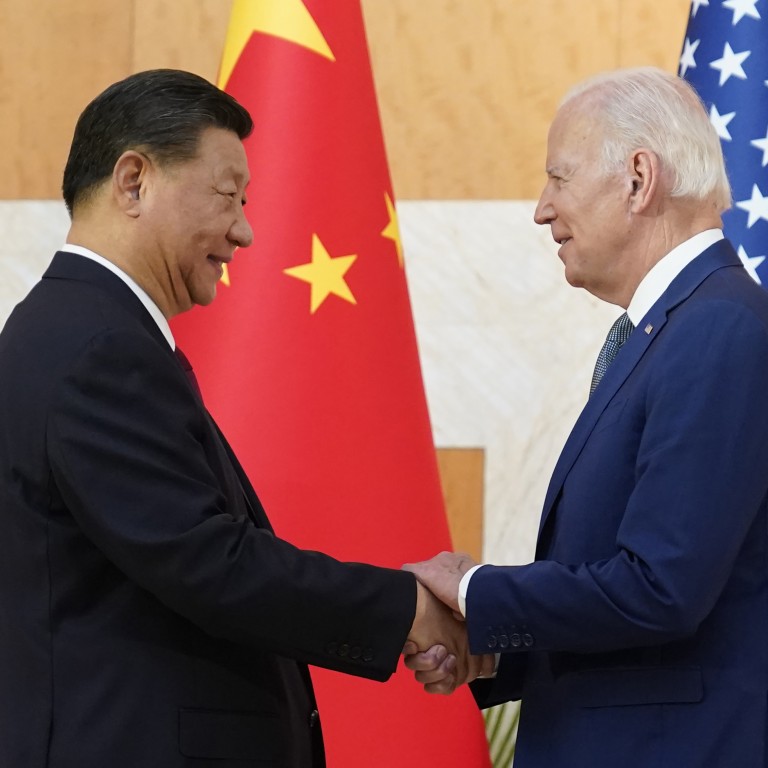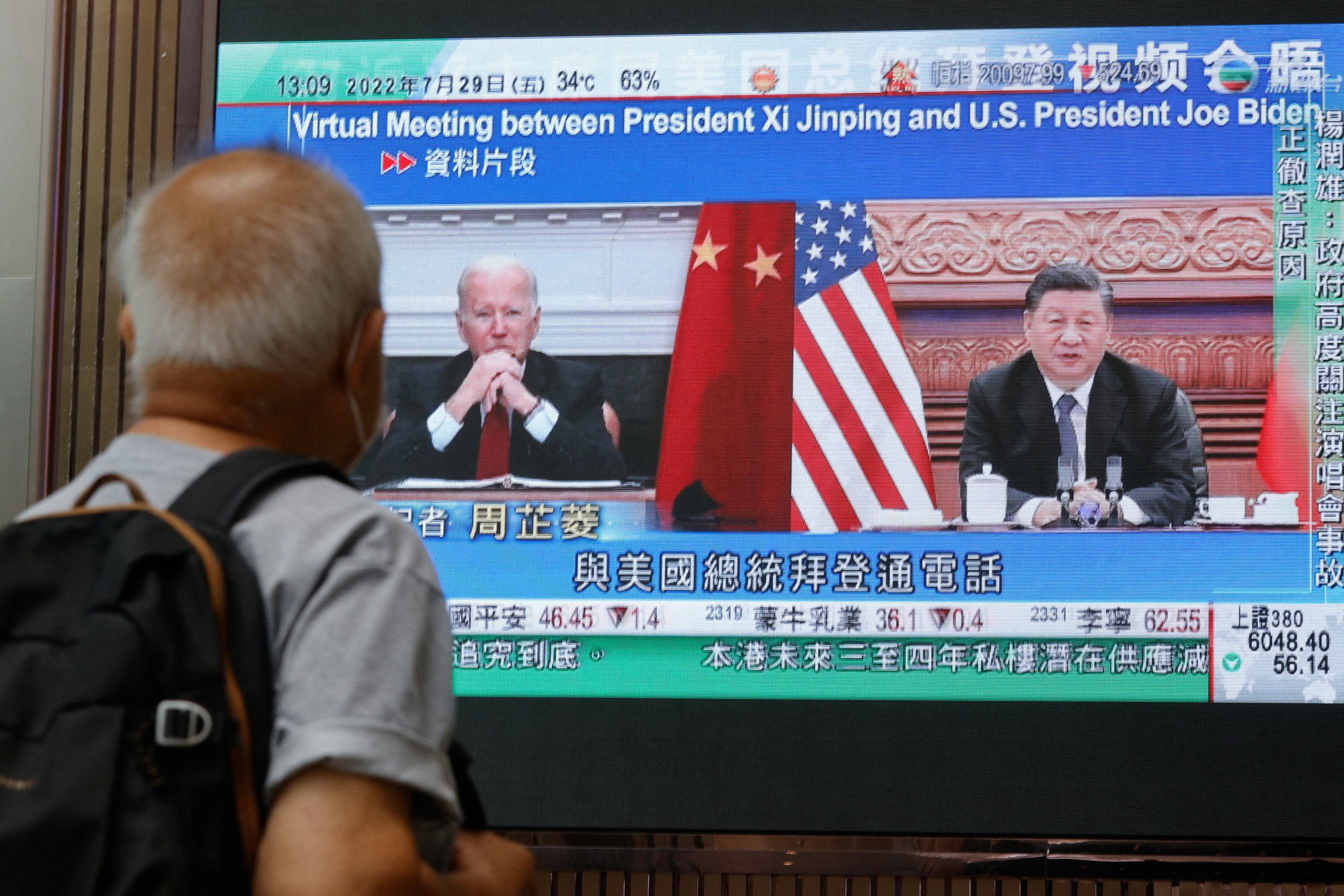
Xi-Biden call reflects critical time in push for stable relations
- Chinese and American presidents took opportunity to have ‘candid’ and ‘constructive’ conversation against backdrop of testing events in region
Summits between the leaders of China and the United States are few and far between. The last one in November ended in agreement to stay in touch between meetings.
Presidents Xi Jinping and Joe Biden did just that on Tuesday in a phone call lasting nearly two hours described by both sides as “candid” and “constructive”, which indicates the two men spoke their minds. For example, state news agency Xinhua said Xi criticised the “endless efforts” of the Biden White House to block the transfer of advanced technology to China.
But such communication at the top helps manage tensions and to avoid misunderstandings.
The phone call had a political backstory. It came ahead of a US presidential election campaign and the inauguration of a new Taiwan leader in May.

Political US campaign rhetoric could test bilateral relations and the talk offered a chance to stabilise them.
It also set the tone for a visit to China this week by US Treasury Secretary Janet Yellen, and another in coming weeks by Secretary of State Antony Blinken, to be followed by a meeting between defence chiefs. Such exchanges aside, those at working bureaucrat level and beyond are also picking up.
Regionally, Beijing will closely watch the inauguration speech by Taiwan leader-elect William Lai Ching-te, whom it has branded a separatist, while the territorial dispute with the Philippines in the South China Sea also involves rivalry with the US. So both parties to the phone call realised the timing was critical and that they need to push for full engagement to ensure bilateral ties remain stable.
On the technology side, China faces stepped-up restrictions on artificial intelligence (AI) and advanced computer chips. Yellen has also flagged industrial overcapacity as an issue for her talks in Beijing.
The US will probably follow up with action on trade protection on electric vehicles and solar panels. So even after the Xi-Biden summit in San Francisco established some kind of framework and foundation for engagement, not to mention more exchanges between two sides, tension and rivalry remain high across the board.
Xi-Biden call was a timely talk about ‘strategic perception’ as tensions flare
In that regard the strongest messages from China are to be found on the issue of Taiwan, with Xi calling it “the first insurmountable red line in Sino-US relations”, and on China’s technological development, with Xi saying it would not sit idly by if the US insists on “suppressing China’s hi-tech development” and depriving it of its legitimate right to develop.
That said, the abiding message ahead of the visits by Yellen and Blinken is that China remains ready to work with the US but Washington must observe Beijing’s core interests and fully implement agreements reached previously between the two sides. The next step should be greater focus on actual policies.

